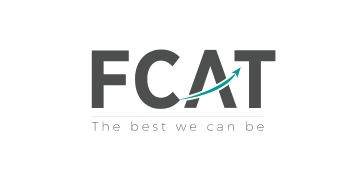With the right planning and resources, online learning can be part of an offer that engages the whole community, writes Julian Drinkall
Before lockdown, AET were already the largest user of Google classroom in the country, and I’m very proud that we have some preeminent experts in digital learning in our curriculum and technical teams. But as soon as it became clear that schools were going to be in lockdown for quite some time, we put rocket boosters under this work.
We knew that it would take some time to get our colleagues across our 58 schools up to a similar level of competence in delivering online, so we immediately created a fortnight’s worth of lessons for all age groups to give our staff the breathing space to start planning in earnest for after Easter.
AET specialises in working in some of the toughest communities in the country, so we knew that having brilliant online learning was all for nought if our children couldn’t access it because of their home circumstances. The digital divide has been around since the internet began, but it was about to get an awful lot worse.
So, we went to our board and put a case for releasing funds of £2m to purchase 14,500 laptops and wifi dongles for any child on free school meals or with an EHCP who needed it.
The digital divide has not been our experience
The Sutton Trust published data indicating that only a third of children were learning at home, and higher disadvantage was strongly correlated with lower engagement. For us, that’s not been our experience. On average, we’ve seen three quarters of our primary children engaging with their online learning and around two-thirds of our secondary students engaged with English and maths. In some of our academies, from Bexleyheath Academy in South London to Newington Primary Academy in Hull, we’ve seen upwards of 90 per cent of students engaged.
We’ve trained staff on how to deliver high-quality, high-impact lessons online, and we’ve drawn on some of the best learning apps out there. We’ve also expanded our online tutoring programme for year 10, a partnership with MyTutor ensuring they get the additional support they need. This is not to say we won’t have a significant job to do in terms of catching up. Of course we will. But I think that task would be so much harder had we not taken the position we did back in March.
And it’s not just about formal learning. Technology has meant we have been able to continue to build and nurture the sense of community that is so important to each of our academies and across the trust as a whole. Last year, over 1,000 children attended our end-of-year event at Northampton’s Derngate Theatre. The ‘Festival of Remarkable Lives’ was one of the most uplifting experiences of my professional life. We had been determined to make it even bigger and even better before Covid hit.
So, we made it a virtual festival instead. If I was proud at the Derngate, then this was something else altogether. Over 30,000 of our AET family tuned in on the day and took part in a whole range of activities, led by CBBC presenters Sam and Mark. We also had some celebs drop in to join us for parts of the day – Emma Bunton, David Walliams and John Hegley. Children performed, voted on best acts, took part in live challenges, and generally were part of one huge family event. It was utterly wonderful and makes my spine tingle just writing about it now.
For me, this demonstrates just how powerful online education in its broadest sense has become.
We know from data recently published by GCSEPod that in a survey of 5,000 teenagers, 6 in 10 say they want online learning to form all or part of their studies, whilst 8 in 10 teachers are comfortable with online learning being a permanent fixture going forward.
We are determined that we will not step back into the old way. Instead, having seen the power and felt the impact of online learning, we will be taking further strides forward.








IT has a valuable place in learning but only when used by professionally-trained teachers appropriately. It’s telling that executives from Silicon Valley, including those who promote Google classroom send their children to private schools run on Steiner principles which avoid IT use.